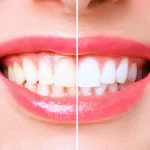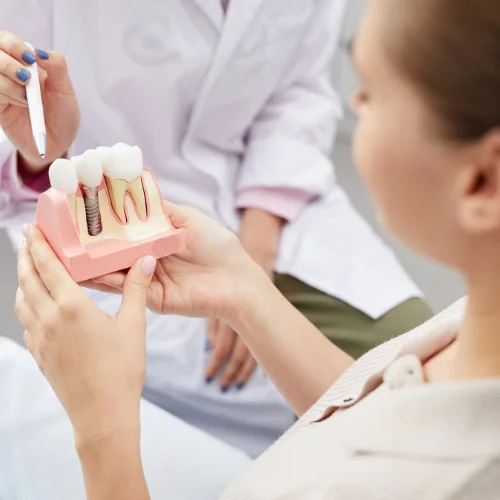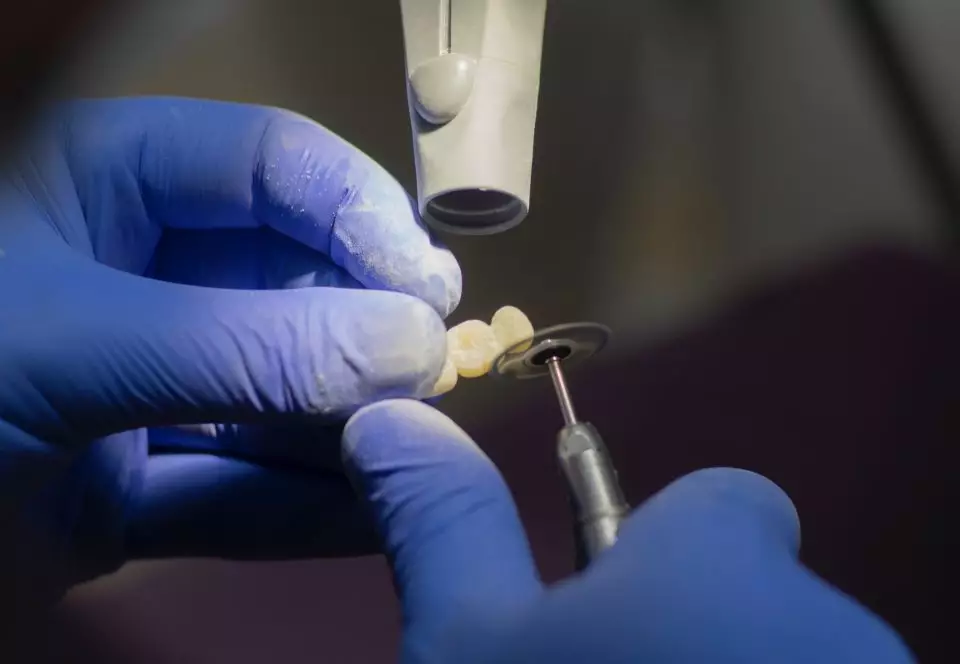
How Long Does It Take For Invisalign To Work?
June 18, 2024
Teeth Whitening For The Holidays
November 25, 2024Key Takeaways:
Dental Implants Require Ongoing Care:
Although dental implants are durable and resemble natural teeth, they still need regular care. Dental implant maintenance involves more than brushing and flossing; it includes a proactive routine to ensure long-lasting results. This includes regular cleanings, specialized tools, and addressing habits like smoking or teeth grinding to prevent complications.
Daily Hygiene and Professional Checkups Are Key:
Maintaining your dental implants means treating them just like natural teeth—brushing twice daily, flossing, and attending routine dental checkups. These habits help prevent plaque buildup, infections, and other complications that could jeopardize the implant’s stability. Dental implant maintenance is all about prevention to avoid bigger problems down the road.
Diet, Habits, and Health Impact Implants:
Your lifestyle plays a big role in the success of your dental implants. Avoiding hard or sticky foods, quitting smoking, and limiting alcohol are key steps in keeping your implants healthy. Additionally, managing overall health conditions like diabetes or osteoporosis is essential, as they can affect healing and the longevity of the implants. Proactive dental implant maintenance ensures the implants function well for years to come.
You’ve got your dental implants, and they feel and look just like natural teeth. But here’s something that might surprise you—dental implants, while incredibly durable, still need specific care to stay in top shape. Dental implant maintenance goes beyond brushing and flossing. It’s about creating a proactive routine that protects your implants and overall oral health. Whether you’re new to implants or have had them for years, understanding how to maintain them properly is essential to enjoy long-lasting results and avoid future complications.
Here are some essential tips on how to incorporate dental implant maintenance into your daily routine.
What You Should Know About Dental Implants
Many people are turning to this amazing solution for missing teeth. They’re durable, look natural, and can really boost your confidence. But before diving in, let’s explain some essential things you should know, especially when it comes to dental implant maintenance.
Dental implants are basically artificial tooth roots, usually made of titanium. Imagine them as sturdy anchors that get surgically placed into your jawbone. Once they’re in place, your dentist can attach replacement teeth, which can be individual crowns, bridges, or even full dentures. Unlike traditional dentures that can shift around, implants stay put, allowing you to eat, speak, and smile without worry!
Exploring The Benefits of Dental Implants
If you’re thinking about dental implants, you’re probably wondering what makes them so special compared to other options. Well, dental implants offer a range of benefits that go beyond just filling a gap in your smile. Let’s break down some of the key perks and why dental implant maintenance is necessary to keep them working their best.
One of the most talked-about benefits of dental implants is how natural they look. Unlike traditional dentures or bridges, implants are designed to blend seamlessly with your existing teeth. The crowns are custom-made to match the size, shape, and color of your other teeth, so unless you tell someone, they’d never know you had dental work done!
Also, dental implants are built to last. In fact, with the right dental implant maintenance and a healthy lifestyle, they can stick around for decades, even a lifetime. Unlike other tooth replacement options that might need adjustments or replacements over time, implants are incredibly durable. However, that durability does come with some responsibility. Just like your natural teeth, implants need to be taken care of with regular brushing, flossing, and visits to your dentist, which leads us to explain the next step.
The Healing Process – What to Expect After Getting Dental Implants
Right after your procedure, you might feel a bit sore, swollen, or bruised in the area where the implants were placed. Don’t worry; this is completely normal! Your dentist will probably prescribe some pain medication and recommend over-the-counter options to keep you comfortable.
Keeping the area clean is crucial for a smooth recovery. You won’t want to brush the surgical site for the first few days, but you can start rinsing your mouth with warm salt water after the first 24 hours to help keep it clean. Just be gentle! It’s also important not to poke or prod at the area with your tongue or fingers. This can introduce bacteria and delay healing. Keep an eye out for any signs of infection, like increased swelling, ongoing pain, or discharge. If something doesn’t feel right, don’t hesitate to reach out to your dentist.
Maintaining Dental Implants
In fact, dental implant maintenance is one of the most important aspects of ensuring that your implants remain functional and beautiful for years to come. Proper care not only helps protect the implant itself but also keeps your gums and surrounding teeth healthy. Here’s how to keep your dental implants in the best possible condition.
Dental Implants Daily Oral Hygiene
The cornerstone of maintaining dental implants is sticking to a regular oral hygiene routine. You’ll want to treat your implants just like your natural teeth—brushing at least twice a day and flossing daily. Make sure you’re using a soft-bristle toothbrush and non-abrasive toothpaste to avoid damaging the implant or irritating the gums. It’s also helpful to incorporate an interdental brush into your routine, as these small brushes can help clean the spaces around the implant where a regular toothbrush might miss.
Recommended Dental Check-ups and Cleanings
Even if everything feels fine, regular dental checkups are crucial. Your dentist will monitor the health of your implants, checking for any signs of complications like gum disease or bone loss around the implant, which we will explain in a but why exactly it’s important. They can also professionally clean your implants to remove any plaque buildup that you might have missed during your daily care. Routine visits to your dentist allow for early detection of any potential issues, helping to avoid bigger problems down the road.
Specialized Cleaning Tools
Depending on your dental situation, your dentist may recommend specialized cleaning tools to help with dental implant maintenance. For example, water flossers are a popular choice for gently cleaning around implants and the gum line without causing irritation. Additionally, antimicrobial mouthwashes can be beneficial for keeping harmful bacteria at bay, reducing the risk of infections or complications.
Watch Your Diet
While dental implants are incredibly durable, certain foods can still pose a risk if you’re not careful. Hard foods like ice, nuts, or even hard candy can put unnecessary strain on your implants, increasing the risk of damage. Sticky foods can also be tricky, as they tend to cling to the implant and encourage plaque buildup. A diet rich in vitamins and minerals will help maintain your oral health and support the longevity of your implants.
Avoid Harmful Habits
If you smoke or consume alcohol excessively, it’s important to understand how these habits can affect your implants. Smoking, in particular, can slow down the healing process after the implant procedure and increase the risk of gum disease, which can lead to implant failure. Similarly, excessive alcohol consumption can contribute to poor oral health. Quitting or cutting down on these habits is an essential part of ensuring that your implants stay healthy and functional.
Importance of Gum Health for Implants
While implants are durable, they heavily rely on healthy gums for stability. Poor gum health can lead to infections like peri-implantitis, which can cause bone loss and potentially result in implant failure. Emphasize the importance of gum care through regular flossing, using mouthwash, and gentle brushing techniques that don’t irritate the gums.
The Role of Night Guards
If you grind your teeth, especially while sleeping—a condition called bruxism—you may be putting extra pressure on your dental implants. Bruxism can happen unconsciously and, over time, can cause wear and tear on your natural teeth, as well as your implants. The constant clenching and grinding exert force on the implant, which can lead to complications like implant loosening, gum irritation, or even damage to the crown placed on top of the implant.
Impact of Systemic Health on Dental Implants
Your overall health can have a big effect on how well your dental implants hold up over time. Conditions like diabetes, osteoporosis, or autoimmune disorders can influence the healing process and increase the chances of complications. For instance, if your diabetes isn’t well-controlled, it can slow down healing and make you more prone to infections. With osteoporosis, the bone density in your jaw might be weaker, which can impact how securely the implant integrates. Autoimmune disorders could also lead to inflammation around the implant, making things a bit tricky. That’s why it’s so important to be aware of how your health impacts your dental implant maintenance.
Understanding the Financial Aspect of Dental Implants
When it comes to dental implants, it’s not just the initial procedure to think about—there’s also the ongoing care needed to keep them in top condition. Dental implant maintenance includes regular checkups, professional cleanings, and sometimes the need for special cleaning tools. Over time, you might also need to replace parts like the crown that sits on top of the implant, which can wear down after years of use.
Talking about the financial side of implant maintenance is important because it sets realistic expectations. By investing in preventive care, like routine dental visits, you can actually save money in the long run by avoiding more costly repairs or replacements down the road. It’s all about staying on top of your oral care so you can enjoy your implants without surprises later.
Preserve Your Smile with Expert Dental Implant Maintenance at Matthews Family Dentistry
Want to ensure your dental implants stay as strong and beautiful as the day they were placed? At Matthews Family Dentistry, we treat you like family! Our team is here to provide personalized care and support to help you maintain your implants for years to come.
Schedule your appointment today, and let’s work together to maintain your beautiful smile.
Frequently Asked Questions
What is dental implant maintenance?
Dental implant maintenance refers to the care and upkeep of dental implants, which are artificial tooth roots used to replace missing teeth.
Why is dental implant maintenance important?
Proper maintenance of dental implants is crucial for their longevity and success. It can help prevent complications and ensure the implants function effectively.
How often should dental implant maintenance be performed?
It is recommended to have a dental check-up and cleaning every six months for routine maintenance. However, the frequency may vary depending on the individual’s oral health and the recommendation of their dentist.
What does dental implant maintenance involve?
Dental implant maintenance typically involves regular brushing and flossing, as well as professional cleanings and check-ups with a dentist. In some cases, special tools may be needed to clean around the implant.
Are there any special products or techniques for dental implant maintenance?
Yes, there are special products designed for cleaning around dental implants, such as interdental brushes and water flossers. Your dentist can also provide specific instructions on how to properly clean and maintain your implants.
What are some signs of potential issues with dental implants?
If you experience pain, swelling, or bleeding around your dental implant, it may indicate an infection or other complication. It is important to visit your dentist if you notice any changes or discomfort around your implants.





